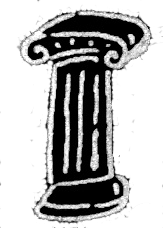Is Paris Burning?
That's what Hitler wanted to know, as the Nazis began their retreat from occupied Paris. That question exemplifies the division, now rapidly growing, between authoritarianism and democracy, between bounded fascism and unfettered freedom. Hitler abhorred the idea of the phoenix of democracy rising back from the ashes of Nazism.What is fueling the swing to the right in Europe? Largely it is the anti-immigrant furor. That newly exposed racist hatred is taking hold all over the West. Partly it is a reaction to extreme fundamentalist terrorism. And partly it is the xenophobia that has infected humankind all the way down from prehistoric times.But the shocking part is how people are willing to give up their fundamental rights and freedoms to follow, install and foment the almost murderous agenda of a tyrannical, authoritarian leader. Formerly communist countries, apparently yearning for democratic freedoms, quickly shifted right toward fascism—Russia, Hungary, Poland, Ukraine. And right-wing parties are gaining in numbers and political power in France, Germany, Austria, Italy, Sweden.America, previously immune to populist, nationalist fervor, is now enduring the threat of that in its public face as portrayed in every Trump rally.Yet the further Trump’s megalomaniacal madness progresses, the more outrageous he fumes and rages and boasts, the harder his Trumpers, his die-hard followers, scream and vociferate with him. They are in his thrall..
”The overall mood of a crowd can be influenced by the leader, either toward destructive impulses or toward more positive attitudes—compare Trump’s impact on his crowds with Martin Luther King’s.”
.
It’s like Hitler at his rallies where he whipped up frenzies of cheering in his massed crowds. Trump, like Hitler, appeals to his followers’ most jingoistic, anti-liberal, racist, and crude expanionist attitudes. And, like Hitler, Trump again and again promises deliverance and vengeance—all in flagrant tsunamis of gross and irredeemable lies.Much of what occurs in Trump’s rallies can be explained by crowd psychology, although there are many versions of the theory. The overall mood of a crowd can be influenced by the leader, either toward destructive impulses or toward more positive attitudes—compare Trump’s impact on his crowds with Martin Luther King’s.What does occur, apparently, is due to a number of possible processes: the anonymity of a crowd submerges the sense of self-responsibility—no individual feels personally liable for the crowd’s behavior; a kind of contagion allows for the spreading of shared beliefs, attitudes and responses; and the intensity of expressed emotions tends to augment the uniformity of crowd action and mood.Participants come away sharing much of the ideas and beliefs stirred in them by the rally experience. It’s like a religious conversion, reinforced by propaganda methodology: Trump’s incessant and repetitive tweets and his daily backup on Fox News. Goebbels would have approved.Perhaps the most virulent accusations Trump hammers out daily is his attack on the free press. He knows, as every dictator knows and has known, that a free press is the final bastion against the agenda of his regime.In countries that have not historically treasured a free press its dissolution by authoritarian governments seems to come more readily than in countries that have long and deeply cherished their free press. In America, even despite Trump’s declared war on the “fake media,” the press is holding on. But the newspapers felt an urgent need to issue a united stand, to rail as one voice against Trump’s dangerous attempt to curtail their all important freedom.Trump’s core (his "deplorables"), like the many Nazis who never gave up their beliefs and whose legacy is now rising again, never will relinquish their commitment to Trump even if the economy betrays them (and some predict it surely will) and even if he goes down in infamous flames (as many anticipate he will).But the passive, submissive allegiance of many Republicans in the House and Senate are testimonies to the power of political branding. The fierce division between the two parties signals a different era in American political attitude. Mutual respect, the underlying united dedication to further our democratic way of life together.This split is more foreboding. Perhaps this analogy does not hold but after the French Revolution installed a democracy, the left-right divisiveness lost much of its freedom under the sway of Napoleon and the installation of his authoritarian regime. It took decades to win back a true democracy in France. Are we in danger of falling into a similar fate?Are we not reaching a critical crossroads? Even if Trump falls away, is our democracy becoming so fragile that we are about to lose it.Will freedom continue to ring out?
